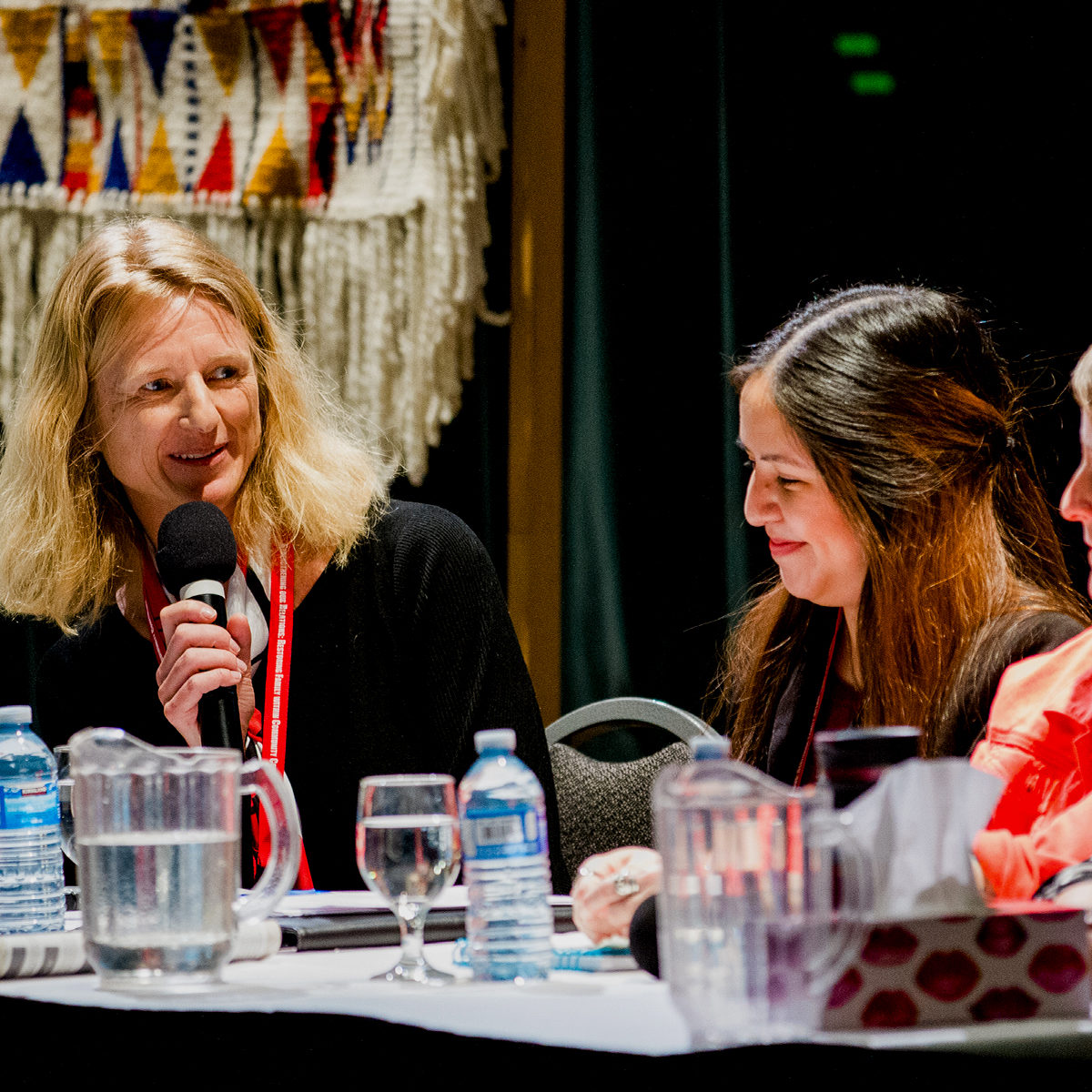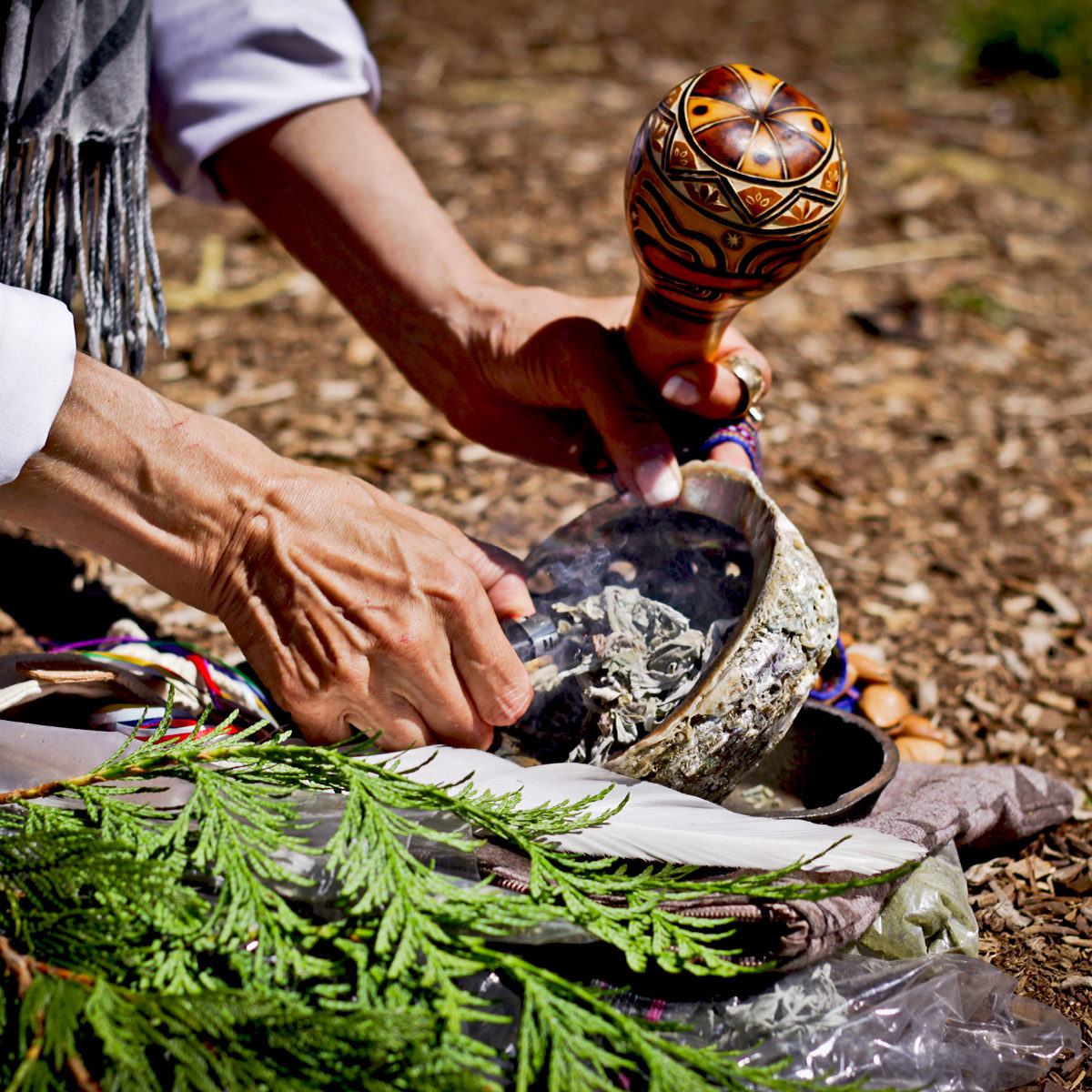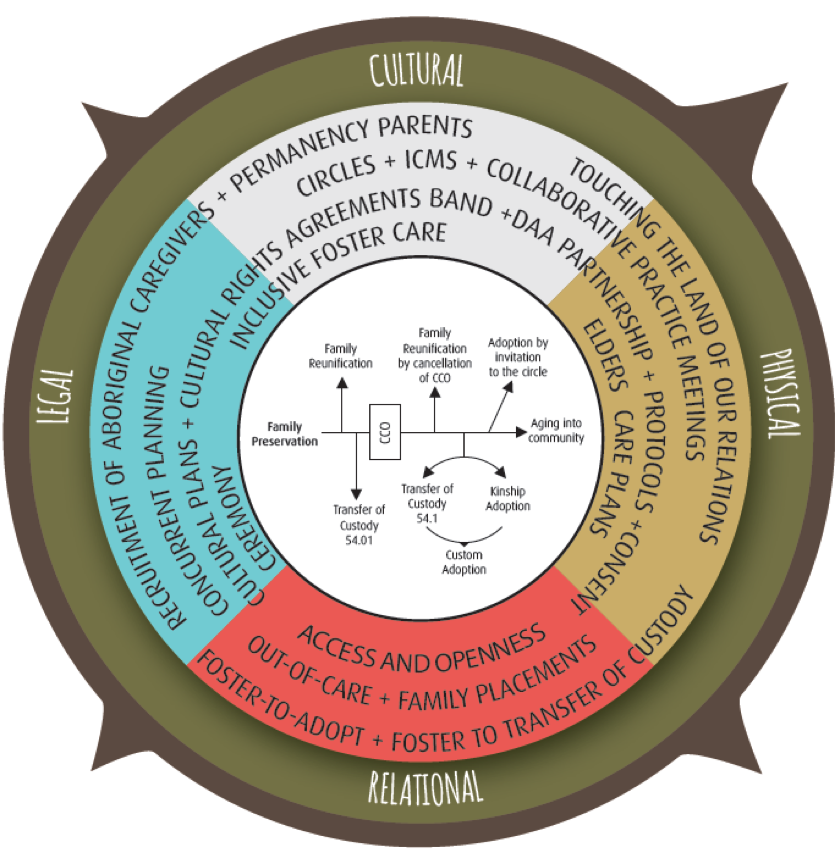Policy, Research, & Development

Policy & Research
At VACFSS our goal is for policy, research, training and quality assurance (QA) processes to work together to support restorative practice. This is practice that:
- Is grounded in intergenerational Indigenous knowledge systems, worldview, and the culture of the family being served
- Is framed within an awareness of and engagement with colonial history
- Departs from the approaches of mainstream social work, in favour of strengths-based, graduated and supportive client engagement, and
- Results in measurable positive change for the family or families served.

Our Process
Our research, policy, training and QA grow from the experiences and needs of our families. We strive to ensure that:
- Our training is guided by VACFSS policies and grounded in our values, cultural knowledge, research and messages from our families as to what works best
- Our research addresses important practice problems, empowers those who participate and leads to findings that strengthen our policies, training and restorative practice
- Our policies are evidence-informed and meet or beat provincial standards while articulating our unique vision, values and practices
- Our Quality Assurance processes honour the experiences of our families, strengthen relationships and support organizational learning

Research At VACFSS
Research plays a big role at VACFSS. Over the years we have collaborated with notable external researchers and conducted numerous internal research projects to understand and strengthen our practice. Our approach is grounded in Indigenous, participatory and community-based approaches. We have often conducted and disseminated research in partnership with our youth in care, building their capacity as co-researchers through initiatives like the Youth Research Working Group, Youth Research Assistant positions and co-hosted Research Slams. Questions explored through recent studies include:
- What pathways of decision-making and practice yield the most restorative outcomes for children and families connected to the child protection program at VACFSS? How may VACFSS ensure the application of this decision-making model and practice pathways/strategies more consistently across the organization?
- What are the implications of the Inclusive Foster Care policy for children and youth in care?
- How do VACFSS’s youth engagement programs (CRUW and YAC) impact the identity and social development of children and youth? What lessons can we learn from these programs to more consistently support youth across Guardianship at VACFSS?
VACFSS has its own Research Committee and Research Ethics Approval Process. One of the Strategic Priorities of the VACFSS Board is to share our experiences in developing and implementing VACFSS child welfare policies and practices, and this means disseminating our research findings. Community partners have been welcomed into our research circles as we work together to consider research findings and implement recommendations. Research articles are submitted to academic journals and our latest Research Conference was held in February 2019. Titled Strengthening our Relations: Restoring Family Within Community, it brought together people from many Nations and across the country to consider together how we can do Indigenous child welfare in a good way.

Policy
At VACFSS we are committed to developing policies that support restorative practice and reflect the unique aspects of our work with urban Indigenous families. We are obligated to work in accordance with provincial child welfare legislation like the Child, Family and Community Services Act, and to comply with Ministry for Children and Family Development policies. However, we are working to reimagine this legislative and policy framework to support fundamentally different practice holding Indigenous children as sacred bundles at the centre of all we do.
VACFSS policies like Keeping our Children Safe and Raising our Children Together were among the first in the province to embody the Aboriginal Policy and Practice Framework, guiding workers through the process of Gathering the circle; Listening, assessing and finding solutions; Creating security, belonging and well-being; and Keeping the circle strong. They outline an approach to working collaboratively with families that incorporates ceremony, culturally grounded services, Elder support and ongoing partnership with the child’s Nation. They intersect with policies like Touching the Land of Our Relations, supporting children in VACFSS care to visit their traditional territories, and our Inclusive Foster Care policy, requiring caregivers to join the child’s circle and to uphold the child’s rights to their family, community and culture throughout the time they are in care.










